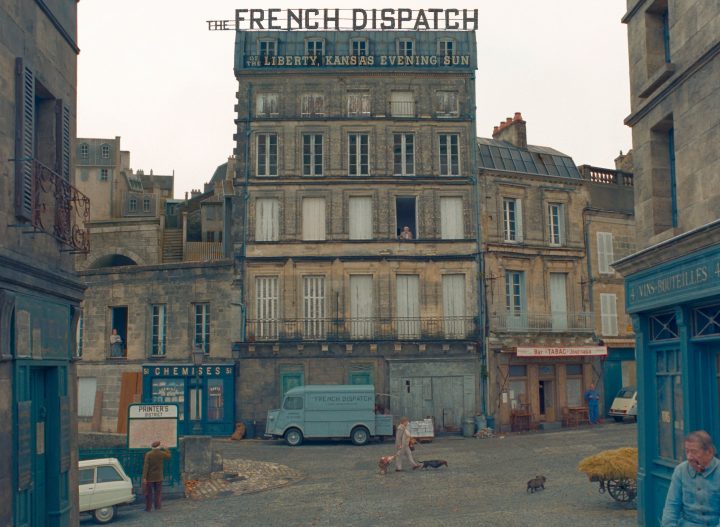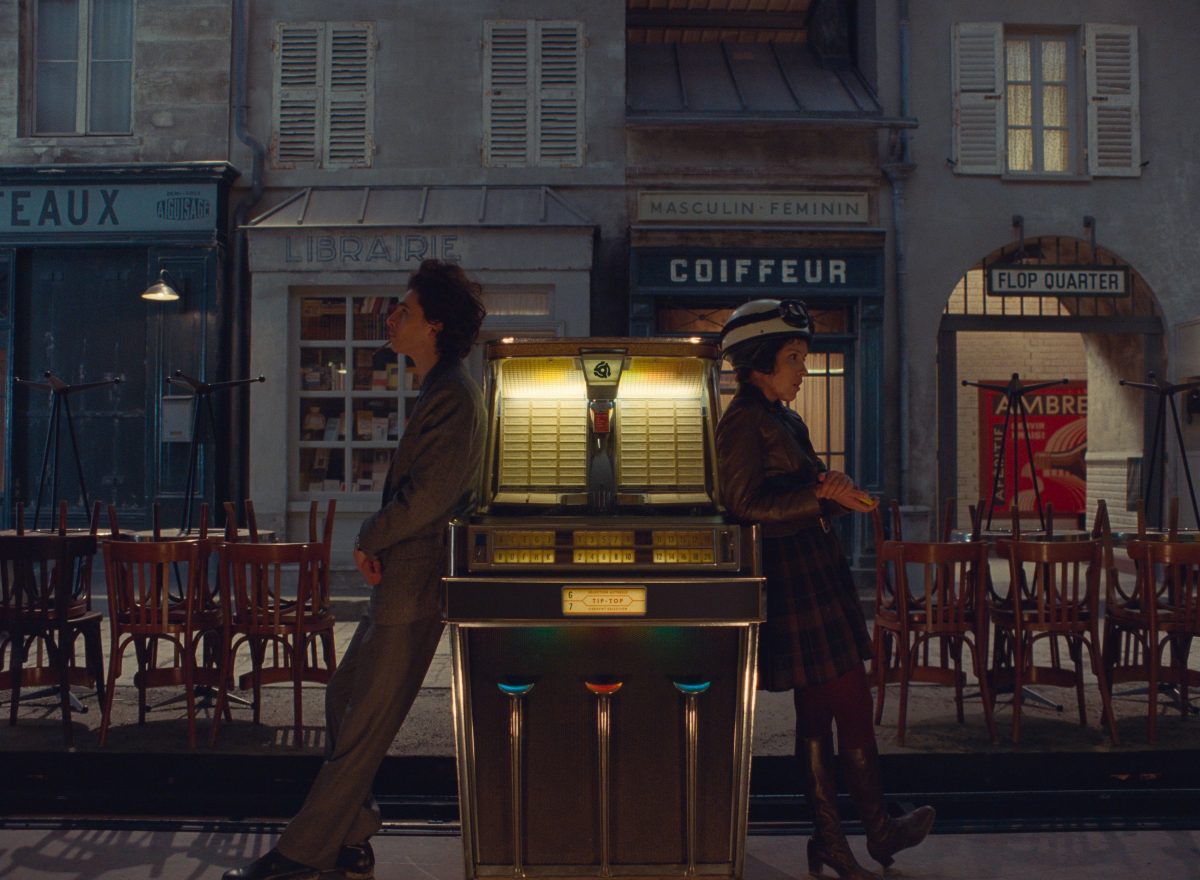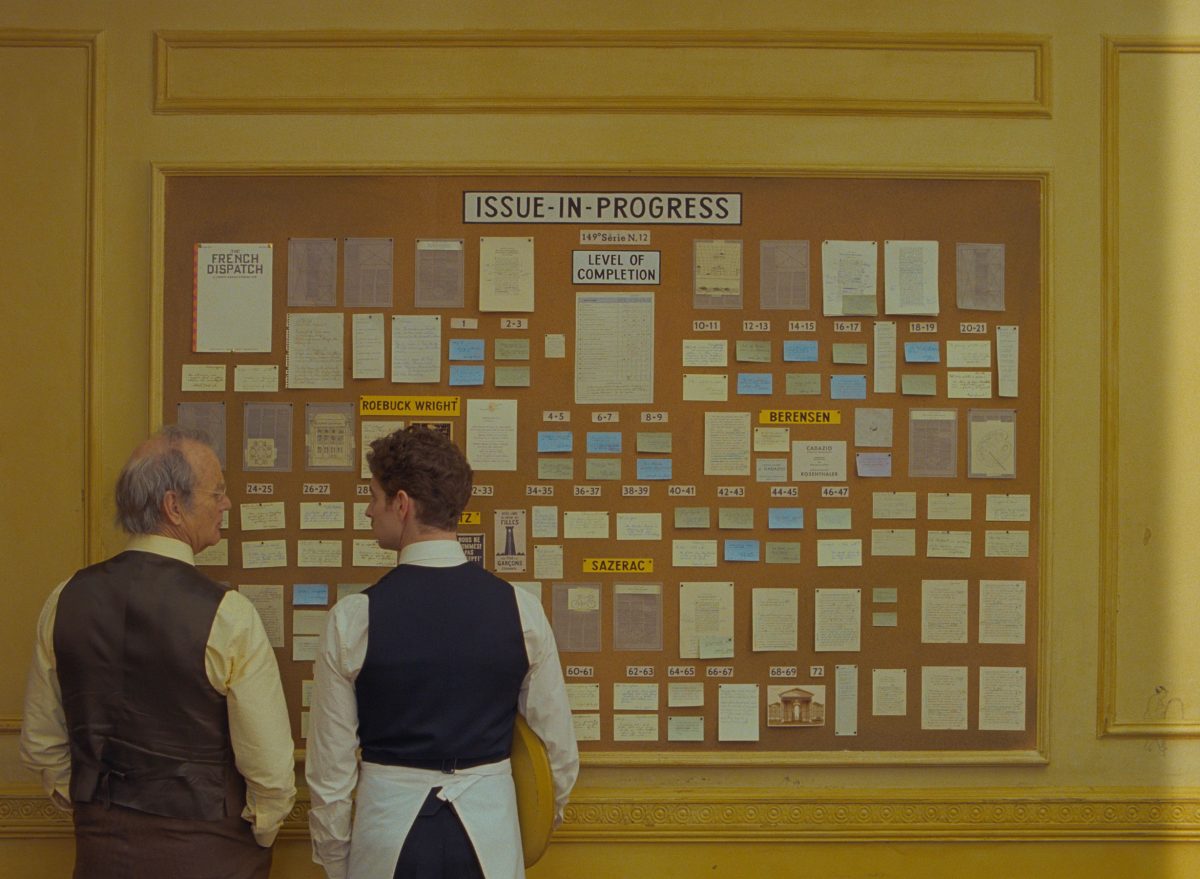
Since his second feature Rushmore, which announced each new month of the story with velvet curtains around the image, Wes Anderson has demonstrated a mania for placing frames within frames. He sees chapter headings, signs, labels, even dialogue itself as ways to dissect a story into its component parts, highlighting every element of his meticulously constructed universes. In The French Dispatch, which just received its world premiere at the Cannes Film Festival (delayed a year from when it was originally supposed to, thanks to COVID-19), he uses this style to bring to life a magazine modelled on his beloved New Yorker. The fictional French Dispatch is an insert of the equally fictional Liberty Kansas Evening Sun, edited by Arthur Horowitz Jr. (Bill Murray) and based in Ennui-Sur-Blasé, France. (“8.25 bodies are pulled from the Blasé River every week,” intones narrator Anjelica Huston.) The staff includes art critic J.K.L. Berensen (Tilda Swinton), investigative journalist Lucinda Krementz (Frances McDormand), and food writer Roebuck Wright (Jeffrey Wright), who are well taken care of. Horowitz is generous with expenses, coughing up the cash for Berensen to stay in a hotel solely to remember a lover she once took there. Each worker has a roomy office in the French Dispatch HQ, which bears a sign warning Silence! Writers writing.

The film is structured in the manner of an issue of the Dispatch, divided into an obituary, three stories, and an endnote. Berensen leads the first story, concerning the fortunes of convicted murderer Moses Rosenthaler (Benicio Del Toro in wild-man mode), whose abstract nude painting of his prison guard muse Simone (Léa Seydoux) draws the attention of the art world. Next comes a political report from Krementz, who embeds with, and then beds, chess player and student revolution leader Zeffirelli B (Timothée Chalamet). Finally, Wright goes to interview a famous police chef, only to be drawn into a caper after the young son of the commissaire (Matthieu Amalric) is kidnapped.

The film’s formal inventiveness pushes the envelope, even for Anderson. During the student revolution, one shot sees the buttercup yellow front of the students’ cafe HQ rolled to the side as the camera pushes forward to see what’s happening within. The backstory of one student sent to the army is told via a flash-forward to a performance of a play that will eventually be written about him. Moments in the kidnapping storyline are portrayed via animation, incarnating Wright’s wry voiceover as he says “the getaway was rendered vividly, if a little inaccurately, in a cartoon strip published the following week.” Anderson delights in owning artifice, building a nesting doll of storytelling modes. The screenplay is so precise as to be word-perfect; Anderson has always had a flair for language, and it makes sense that this quality would peak in a film about writers.

While it is sometimes hard to keep up with the dizzying level of detail and whirlwind storytelling, it is a consummate pleasure to be in the world of The French Dispatch. In lieu of full character arcs, each actor is afforded the opportunity to convey something impressionistic and often deeply emotional during their moment in the spotlight. Anderson manages this tribe of talents like a reverent conductor, and each actor knows that their power comes from contradicting elements. Seydoux plays a stern authoritarian who believes in the power of art, while Chalamet’s strident revolutionary is totally vulnerable before an older woman. Wright is tremendously moving, exuding grace and melancholy through what is essentially an extended tribute to James Baldwin (who has a dedication in the credits).
Amid the ooh-ahh of the pristine 1960s set design and walking rolodex of A-listers, one wonders about the cohering impetus beneath these stories. So much of Anderson’s work is concerned with nostalgia and the grandeur of lost worlds. The French Dispatch is of a piece with that tendency, especially his 2014 film The Grand Budapest Hotel. Once it was enough for him to make movies in real locations, but Hotel’s Zubrowka and Ennui-sur-Blasé are pure confections. Despite the whimsy, there is a deep longing in this tendency to conjure great castles in the sky.
The French Dispatch opens in theaters October 16.
0 Commentaires